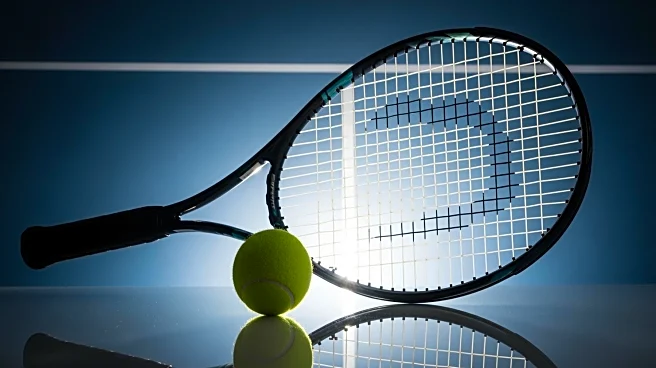What's Happening?
Iga Swiatek faced defeat against Amanda Anisimova in the WTA Finals, concluding her 2025 season. Swiatek initially took the lead by winning the first set in a tie-break, positioning herself close to the semifinals. However, Anisimova, demonstrating strong
mental resilience, came back to win the match in three sets, advancing to the semifinals. Post-match, Swiatek's comments about her performance and the outcome have sparked criticism. She expressed confusion over her inability to progress, attributing it to possible karma from past victories. Her remarks have been perceived as lacking sportsmanship, overshadowing Anisimova's hard-fought victory.
Why It's Important?
Swiatek's comments have stirred debate about sportsmanship in professional tennis. Her remarks, seen as undermining Anisimova's achievement, highlight the pressures athletes face in maintaining composure after losses. This incident may influence public perception of Swiatek, affecting her reputation and sponsorship opportunities. It underscores the importance of graciousness in defeat, which can impact an athlete's career and fan support. The criticism also reflects broader expectations for athletes to exhibit humility and respect, regardless of the match outcome.
What's Next?
Swiatek may need to address the backlash and work on her public image. This situation could prompt discussions within the tennis community about sportsmanship standards. Swiatek's future interactions with media and opponents will be closely watched, potentially affecting her relationships and career trajectory. As she prepares for the next season, she might focus on improving her mental approach to losses, which could enhance her performance and public perception.
Beyond the Headlines
The incident raises questions about the emotional challenges athletes face and the role of media in shaping narratives. Swiatek's comments reflect the psychological strain of high-stakes competition, highlighting the need for mental health support in sports. This event may contribute to ongoing conversations about athlete well-being and the pressures of maintaining a positive public image.

















